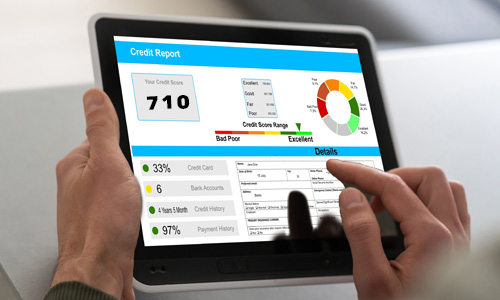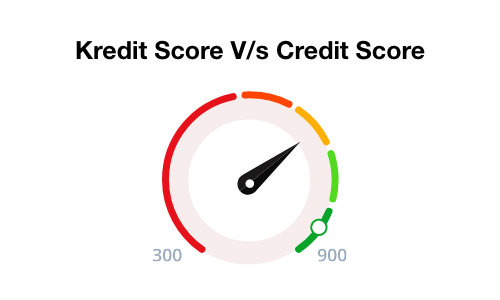You Should Know About Your Credit Score with Age
In an era where financial decisions carry significant weight, understanding the relationship between your credit score and age is crucial. Your credit score, often regarded as a financial fingerprint, evolves over time and reflects your financial habits and responsibilities.
In this article, we will dive into the critical nuances of how age influences your credit score — from its initial formation during early adulthood to the dynamic changes that it undergoes as you progress through life.
Discover the pivotal role age plays in shaping your creditworthiness and gain insights into the proactive steps you can take to ensure a robust financial future. Unlock the wisdom behind your evolving credit Score in this comprehensive exploration.
Credit Score with Age
Your age is not taken into account when determining your credit score. However, the age of the accounts listed on your credit reports is significant in terms of your credit score. Having older accounts and a higher average age of credit can potentially improve your credit score.
Individuals who are older are naturally more likely to possess longer credit histories. Consequently, it should not be unexpected that older individuals typically have higher credit scores compared to their younger peers.
For instance, the Silent Generation, with an average age of 75, typically boasts a credit score that is around 84 points higher than Generation Z, whose members range from 18 to 23 years old.
Credit Score for Different Age Groups
Here is the segregation of credit scores with different age ranges -
- For individuals aged 18 to 25 (Generation Z), the typical credit score averages somewhere near 679. This age group primarily consists of students who are just beginning to build their credit history. Many of them acquire student credit cards and loans with lower credit limits. The lower average score is often attributed to their limited income, higher credit utilisation, and short credit history.
- Those between the ages of 26 and 41 (Millennials) typically have an average credit score of around 687. As they progress in their careers, their income levels tend to increase. A significant portion of this demographic manages mortgage and auto loan payments, diversifying their credit portfolio beyond student loans and credit cards.
- The average credit score for individuals aged 42 to 57 (Generation X) stands at 706. At this stage of life, several individuals may co-sign student loans for their children or explore debt consolidation options to reduce financial obligations and prepare for retirement. This age group also benefits from being in the peak earning years of their careers.
- For those aged 58 to 76 (Baby Boomers), credit scores continue to rise, reaching an average of around 742 which is classified as a ‘very good’ rating. Individuals in their 60s often have extensive credit histories, substantial savings, and well-established retirement plans. Some individuals within this demographic prioritise settling any remaining debts as they approach retirement.
- Individuals aged 77 and older (Silent Generation) typically maintain stable credit scores, averaging around 760 points. However, they tend to be cautious about using credit, relying on sources like Social Security, pensions, and retirement savings for financial support instead.
Members of this generation are usually known for their diligent efforts in paying off various financial obligations, which contributes to their nearly flawless credit scores.
Why Do Senior Citizens Have a Better Credit Score?
Let’s discuss the reasons as to why senior citizens have a better credit score -
- Senior citizens possess lengthier credit histories, which play a significant role in determining their AECB Score, accounting for 15% of the calculation. This factor encompasses the age of their individual credit accounts, the average age of all their accounts, and the duration of their credit usage. Senior citizens enjoy a notable advantage in this regard, as many of them have been utilising credit for several decades. There is no substitute for this experience — younger adults can only build extensive credit histories over time.
- Their incomes tend to be higher as well. It's important to clarify that income does not directly impact one's credit score. However, credit card companies use income as a factor in determining the credit limit they will extend to an individual. Incomes generally increase with age as individuals acquire more skills and experience, enabling older individuals to maintain lower credit utilisation ratios. Credit utilisation constitutes 30% of the AECB Score, and a lower ratio is more favourable.
- Moreover, senior citizens typically exhibit better payment habits. Nothing is more crucial for a credit score than one's payment history, which constitutes a substantial portion of the AECB Score. Delinquency on a credit card bill, defined as being late on a payment by at least 30 days, can significantly lower a credit score. Whether due to greater financial stability or a heightened awareness of the importance of timely payments, senior citizens tend to have superior payment habits compared to younger generations.
- Furthermore, they have had more time to recover from past credit issues. Negative marks on a credit history don’t have a lasting impact — they have the greatest impact when they occur and gradually diminish in significance as time passes. The duration of this recovery process depends on the severity of the issue.
How to Improve Your Credit Score?
Here’s how you can improve your credit score -
- Supplementing Your Deposits - Boosting your credit score can be achieved by making additional deposits into your bank or credit card account. You can simply contribute more than the outstanding balance at the end of your billing cycle, thereby increasing the funds in your credit card.
- Timely Bill Payments - As mentioned before, failing to make timely payments or submitting incomplete payments for your credit card bills can negatively impact your credit score. Consequently, it is vital to make sure you promptly settle all your bills to enhance your credit rating. This principle not only applies to credit card bills but also extends to other recurring monthly payments like personal loans, auto loans, and mortgage instalments.
- Acquiring a New Credit Card - Having an inactive credit card does not guarantee a high credit score — your credit rating is influenced by loan repayment behaviour as well. Even if you lack a credit card but consistently make late loan repayments, your credit score may suffer. In such cases, obtaining a new credit card and maintaining a record of on-time payments is an effective way to easily raise your credit score.
- Settling Outstanding Debts - Clearing your existing debts and ensuring that all repayments are made on or before the due date is among the most effective methods for improving your credit score. Various options, such as balance transfers, personal loans, or upfront cash payments, can be used to settle your current obligations and enhance your creditworthiness.
- Effective Management of Existing Credit Cards - If you presently hold credit cards, it’s important to properly handle them in terms of their utilisation as well as timely payments. Make sure that you actively use all of your credit cards and refrain from letting any accounts remain inactive.
Contrary to common belief, leaving a credit card unused and suddenly closing or deactivating it can harm your credit score. For this reason, it is recommended to periodically make payments with each of your credit cards to avoid any adverse consequences on your credit rating.
| Credit Score for different types of Loan | |||
|---|---|---|---|
| Credit Score for Personal Loan | Credit Score for House Loan | Credit Score for Car Loan | Credit Score for Student Loan |

More From Credit Score
- Recent Articles
- Popular Articles












